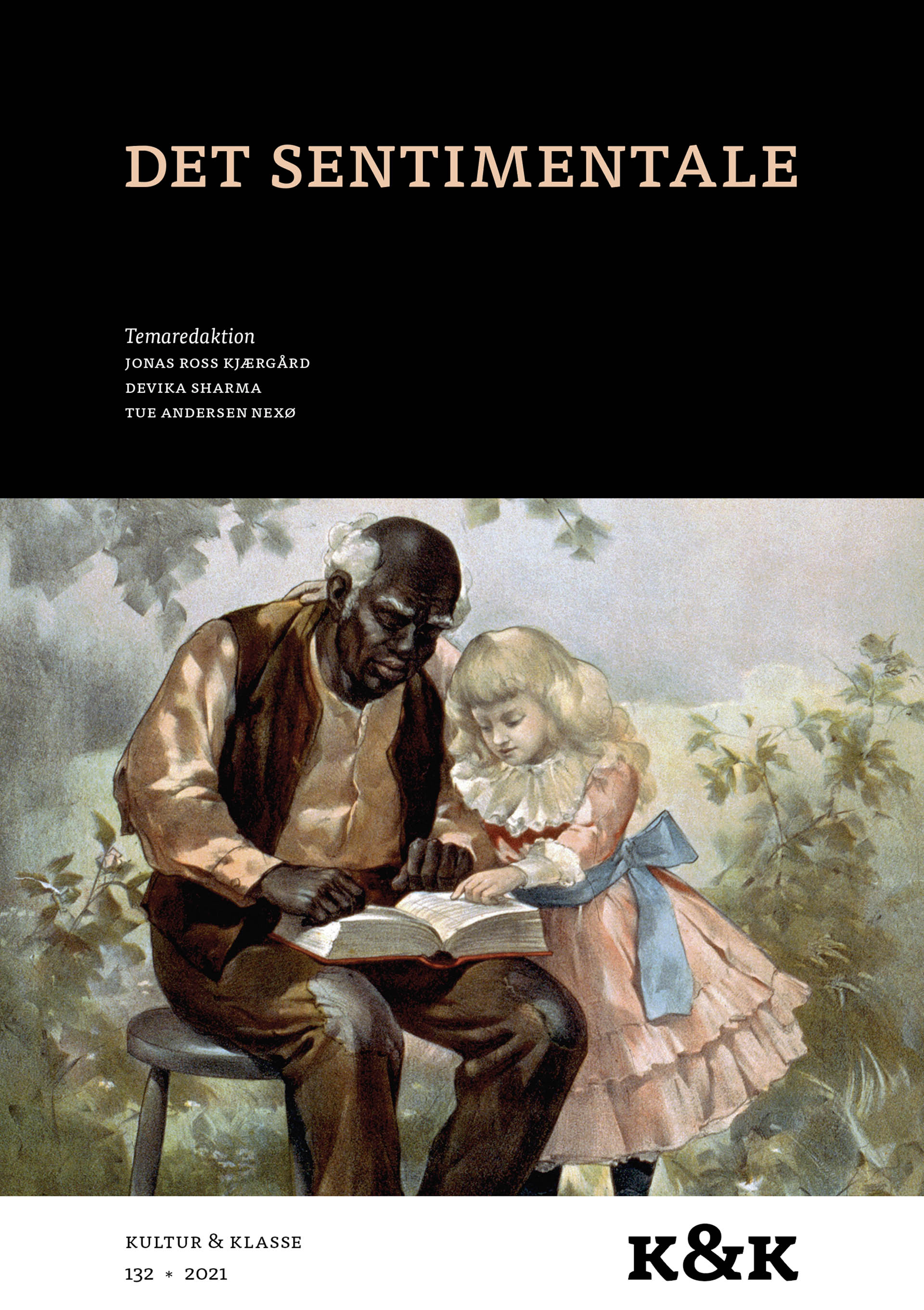Fra sentimental magtesløshed til kolonial rædsel
Litterære skildringer af slaveri og slaveoprør på Jamaica
DOI:
https://doi.org/10.7146/kok.v49i132.130054Nøgleord:
Gotik, kolonialt slaveri, Jamaica, følsomhed, sympati, slaveoprør, abolitionismeResumé
The article explores the use of sentimental and Gothic emotionality in William Earle’s epistolary novel Obi or, The History of Three-Fingered Jack (1800). Literature about colonial slavery challenges previous notions of the relationship between the sentimental and the Gothic as literary traditions and modes of writing. The sentimental narrative often involves morally edifying tears and compassionate attempts to alleviate the suffering of others. In Obi’s Gothic passages, however, extreme sensitivity proves powerless or downright dangerous as tears and prayers for mercy overwhelm the senses of the sympathetic protagonists. In Earle’s literary representation of slavery and slave revolt, the Gothic mode demonizes the slave trade and highlights the breakdown of sentimental benevolence and its theatrical codes of emotional display. Thus, Earle’s novel complicates Lynn Festa’s reading of sentimental sympathy and pity as feelings that construct hierarchical relations of empire. In Obi, sentimental emotionality does not support racial inequality but is insufficient, nonetheless, as a model for useful social action.
Referencer
Carey, Brycchan. ”Abolishing Cruelty: The Concurrent Growth of Anti-Slavery and Animal Welfare Sentiment in British and Colonial Literature.” Journal for eighteenth-century studies 43 (2020): 203-220.
Carey, Brycchan. British Abolitionism and the Rhetoric of Sensibility: Writing, Sentiment, and Slavery, 1760-1807. Houndmills, Basingstoke: Palgrave Macmillian, 2005.
Clery, E. J. The Rise of Supernatural Fiction, 1762–1800. Cambridge: Cambridge University Press, 1995.
Davis, David Brion. The Problem of Slavery in Western Culture. Ithaca, N.Y: Cornell University Press, 1966.
Earle, William. Obi, or, the History of Three-Fingered Jack. Red. Srinivas Aravamudan. Toronto, ON: Broadview Press, 2005.
Ellis, Markman. The History of Gothic Fiction. Edinburgh: Edinburgh University Press, 2000.
Fastrup, Anne og Tue Andersen Nexø. ”Alene i en fremmed verden: Følsomhed og gotik i Ann Radcliffes The Mysteries of Udolpho”. Selvet. Fra sjæleliv til skolestil: Europæisk litteratur 1500-1800. Bind 4. Red. Christian Dahl og Tue Andersen Nexø. Aarhus: Aarhus Universitetsforlag, 2021. 211- 233.
Festa, Lynn. Sentimental Figures of Empire in Eighteenth-Century Britain and France. Johns Hopkins University Press, 2006.
Hudson, Hannah Doherty. ”Sentiment and the Gothic: Failures of Emotion in the Novels of Mrs Radcliffe and the Minerva Press”. The sentimental novel in the eighteenth century. Red. Albert J. Rivero. Cambridge: Cambridge University Press, 2019. 155-172.
Hunt, Lynn. Inventing Human Rights: A History. New York: W.W. Norton, 2008.
Potkay, Adam. ”Olaudah Equiano and the Art of Spiritual Autobiography”. Eighteenth-Century Studies 27 (1994): 677-690.
Radcliffe, Anne. ”On the Supernatural in Poetry”. New Monthly Magazine 16 (1826): 145-152.
Downloads
Publiceret
Citation/Eksport
Nummer
Sektion
Licens
Tidsskriftet følger dansk ophavsret.


